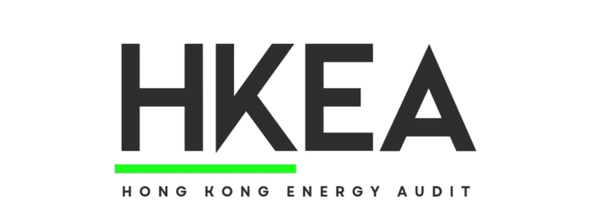
[Chartered Engineer One-on-One Course]
Share
Most high-tech and management-level engineering positions in Hong Kong, or those requiring independent design, project leadership, and innovative solutions, typically require applicants to hold a Chartered Engineer (CE) qualification. HKEA offers a one-on-one CE qualification course to help you obtain this qualification. The CE qualification is considered a professional certification for handling significant engineering responsibilities and risks, and is often a gateway to promotions to senior engineer, project manager, technical supervisor, or even consulting engineer. For these positions with significant decision-making power and professional influence, CE qualification is almost a prerequisite.
Why is the Chartered Engineer qualification so important?
The qualification of chartered engineer is often linked to higher salary levels. Chartered engineers have more bargaining chips when negotiating salaries. Companies are willing to pay generous remuneration to engineers with professional certification and many years of practical experience. High salary not only reflects the recognition of their professional strength, but also demonstrates the ability to lead large projects, manage teams and take responsibility.
Obtaining the Chartered Engineer designation not only facilitates personal professional development but also enhances your professional status and market competitiveness. Becoming a Chartered Engineer signifies that you have achieved internationally recognized professional standards, demonstrating that your knowledge, skills, and experience are recognized by the relevant industry bodies. This accreditation demonstrates to employers and the industry that you possess the ability to solve complex engineering problems and continuously pursue professional development to stay abreast of the latest technical information. This is a highly persuasive tool for job hunting or promotions, enhancing your resume's appeal and facilitating your advancement into more senior positions. It also opens up opportunities for international development, providing strong credentials for working for multinational corporations, participating in overseas engineering projects, and applying for engineering-related positions abroad.
Chartered Engineers are required in many professional fields, such as structural engineering, mechanical engineering, electrical engineering, and building services engineering. Many multinational corporations and large engineering consulting firms prioritize candidates holding the Chartered Engineer designation, demonstrating confidence in their professional competence and demonstrating their ability to shoulder core responsibilities such as project safety, design compliance, and the introduction of innovative technologies. Furthermore, certain senior positions within government engineering departments and professional regulatory bodies, particularly those involving approval, project quality monitoring, and risk management, often explicitly require applicants to hold the Chartered Engineer designation to safeguard public safety and project quality.
Chartered Engineer designation is a prerequisite for many independent engineering consultants and professional practitioners, helping them gain trust and recognition when bidding for or executing large-scale engineering projects. Some professional engineering consulting or inspection firms even use it as a hiring criterion. Furthermore, Chartered Engineer designation is often required for applying for professional registration, signing important engineering documents, or acting as a professional witness.

HKEA Chartered Engineer CEng One-on-One Course
- Course Phases 1 to 3 - Targeted at submitting professional reports
- Course Stage 4 - Interview for Chartered Engineers
Target customers: Those who wish to obtain the Chartered Engineer qualification through engineering institutions (such as CIBSE, IMechE, IET, HKIE, etc.)
Instructor's qualifications: Dr. Tse MY - BEng(Hons), PhD, CEng, FCIBSE, REA, WELL Faculty, LEED AP, SITES AP, BEAM Pro
The course is charged in stages and candidates can enroll as needed
Phase 1 (HKD $1,500)
Basics and abilities correspondence/understanding CEng rules:
• Understand the CEng application process, requirements and assessor expectations.
• Knowledge of the scope of professional competence (UK-SPEC or relevant standards).
• Assist in assessing whether the candidate’s own experience corresponds to the competency requirements.
• Assist candidates to identify strengths, gaps and project experiences that can be used as evidence.
Outcome: Personal Capabilities Mapping and application roadmap.
Phase 2 (HKD $2,000)
Report writing and evidence compilation
• Provide writing skills and guidance to help candidates overcome the difficulties they may encounter when starting to write.
• Learn how to present your technical achievements in a concise and powerful way to increase the examiner's favorability towards your report and lay a good foundation for interview results.
• Assist in screening candidates’ engineering projects and teach them tips on how to score extra points in writing.
• Provide individual feedback on drafts to participants.
Deliverables: A first draft of the EPR/PRR that is consistent with the review requirements.
Phase 3 (HKD $6,500)
Report review and submission preparation
• To teach step-by-step method of writing Engineering Practice Report (EPR/PRR).
• Comprehensive review of completed (EPR/PRR).
• Provide recommendations for accuracy, consistency, and compliance with review criteria.
• Check formatting, references and completeness.
• Explain the post-submission process and subsequent arrangements.
Deliverable: A professionally revised EPR ready for submission.
Stage 4 (HKD $8,000)
Professional interview preparation
Candidates who have participated in Phases 1 to 3 can enjoy a 15% discount in Phase 4.
• Understand the interview format, assessment criteria and common questions.
• Learn how to organize answers and effectively demonstrate leadership/technical depth.
• Conduct mock interviews and provide suggestions for improvement.
• Develop skills to cope with unexpected or challenging situations.
Outcome: Complete a mock interview and receive personalized feedback, along with a dedicated interview preparation checklist.
HKEA Chartered Engineer (CEng) one-on-one courses are designed by examiners from professional engineering institutions. Candidates can choose the stage of participation at their own discretion, subject to the following rules:
• Candidates for Stages 1 to 3 must register sequentially, but are not required to register for all stages.
• You can register independently for the fourth phase, but you will not be eligible for discounts.
If you wish to obtain the Chartered Engineer qualification through a professional institution, please feel free to contact our customer service staff and we will be happy to assist you.




